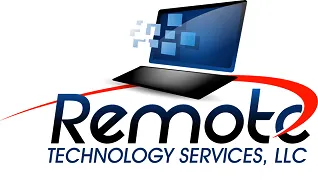
Looking For Reliable IT Services In Myrtle Beach?
(800) 478-8105
Understanding Cloud Offerings and How to Best Integrate Them Into Your Business

Taking advantage of cloud services has become a major part of modern business, but, as with any new and constantly changing practices, it can be hard to keep track of the benefits and uses of new technology. So how do cloud-based services, such as SaaS (Software as a Service), PaaS (Platform as a Service), and IaaS (Infrastructure as a Service), affect YOUR business?
SaaS
This is the most common cloud-based service and likely the easiest to understand and navigate for users. In fact, if you use Gmail for work or personal e-mail, then you’re already using Software as a Service. The most valuable aspect of this model is that those using it no longer need to install applications onto their device – instead, they’re hosted on a web server and accessed through a client. Gmail offers e-mail, storage, spreadsheets, document editors and other useful tools all through an online sever accessible through web and mobile devices. This makes it easy for users to sign up for and begin using new services. SaaS also provides benefits for developers, such as making it much easier to roll out updates as the application is hosted centrally. Benefits of SaaS include:
Easy access to applications
Lower initial costs
Hassle-free upgrades
Seamless Integration
PaaS
Primarily used as a development tool to provide IT workers with a standardized and versatile building framework, PaaS is the standard for testing and hosting applications. It generally accounts for less revenue than SaaS, but is still an incredibly viable component to the cloud computing market. PaaS has been known to greatly reduce the cost of entry for software entrepreneurs, as well as streamline application development. PaaS billing is based on usage and the vendor is in charge of management, leaving developers free to work on what they do best. Overall benefits of PaaS include:
Reduction in total costs
Improved navigation, speed, and flexibility
IaaS
IaaS users are responsible for installing their own operating system and managing their applications themselves, while the IaaS provider takes care of the management of underlying hardware. This may be a bigger burden on administration, but it provides added flexibility and can easily be scaled up or down to comply with demand. It is the most basic cloud offering and serves as the infrastructure powers many of the most popular services and applications. Benefits include:
Cost saving
Allowing time to focus on business growth
Easy availability
In the new technology age, business practices are constantly evolving and can be slightly hard to keep track of. If you’re looking for help to determine how to best integrate cloud-based services in your business, contact Remote Technology Services at (800) 478-8105 or send us an e-mail at {e-mail}.
Tired Of Empty Promises?
Contact Us Today And Book Your
Free Technology Consultation
With The Region’s Top IT
Company

Step One
Listen To What Our Clients Say:
GET IN TOUCH
1293 Professional Drive
Myrtle Beach, SC 29577
(800) 478-8105
(843) 222-6198
Privacy is our policy. We may contact you from time to time with special offers but we will never sell or provide your information to anyone outside of our company.
CONNECT
Call (800) 478-8105 today to schedule your free technology assessment
Remote Tech Services provides IT Support & IT Services for businesses in Wilmington, Sunset Beach, Calabash, Little River, North Myrtle Beach, Myrtle Beach, Florence, Conway, Longs, Georgetown, Charleston and throughout the Grand Strand.





